By indirect evidence (based on the numbering of documents), we can conclude that in less than a month (from September 18 to October 13) Troshevs sent at least 224 letters of condolence, and in total, by mid-October, at least 458 prisoners recruited by Prigozhin died in Ukraine ( specifically prisoners, because in this series The Insider did not find a single letter sent to the family of an ordinary mercenary). Over the past three weeks, dozens of new messages from relatives of prisoners about their deaths have been published on social networks, so by the beginning of November their number is definitely more than 500, but how many exactly is unknown, since since mid-October none of the relatives has posted a photo of the awards where they were the serial number would be visible (probably, relatives were warned that uploading photos of award documents is prohibited).
For example, here is how one of these letters addressed to the relatives of Yevgeny Abramovich looks like. The document shows the serial number (No. 325) and the date – 09/23/2022.
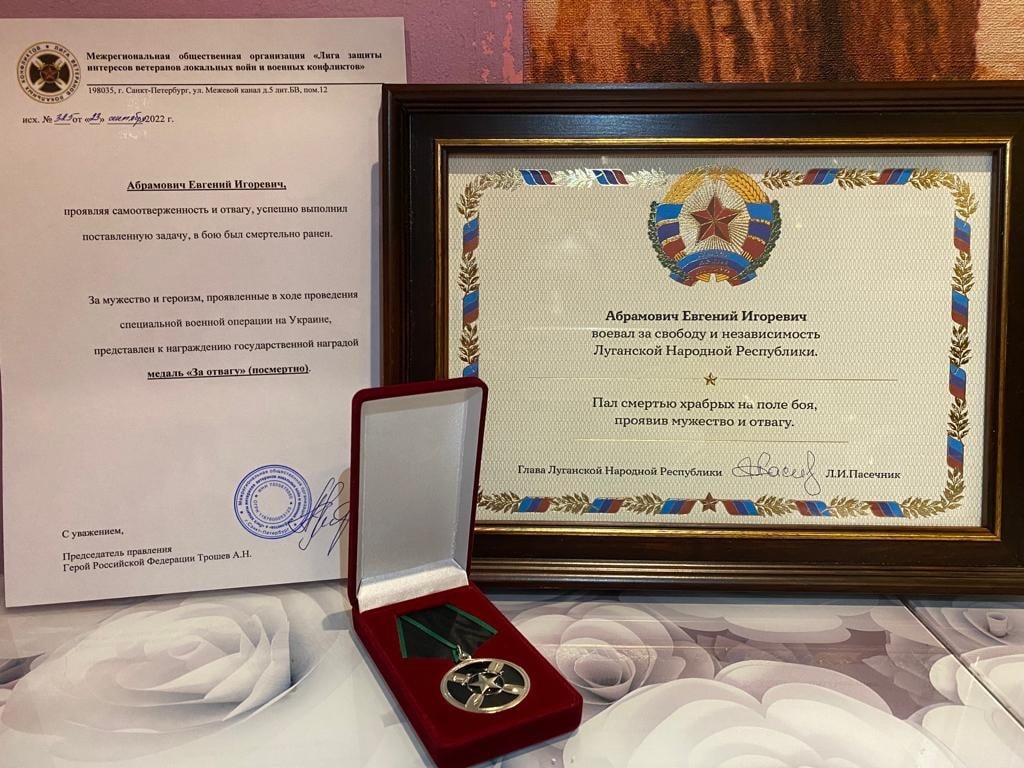
In a conversation with The Insider, Zinaida Tarelko, Abramovich's sister, who published a post with a photo of the letter, said that her brother really died in Ukraine:
“He called me from there on video once. He left the PMC, he didn’t tell much. He didn't even say where he was. He said that everything is fine, so as not to worry. They were pardoned, and they have already gone as volunteers. On paper, that's how it works. According to him, they did not give out a pardon paper. Thank you for letting me bury, I read many articles that they are looking for sons, husbands, brothers for three months.
According to what article Abramovich served time, the sister did not specify. And here, for example, is another letter – No. 364 sent to the relatives of Yevgeny Tsarkov convicted of theft , sent on October 12:
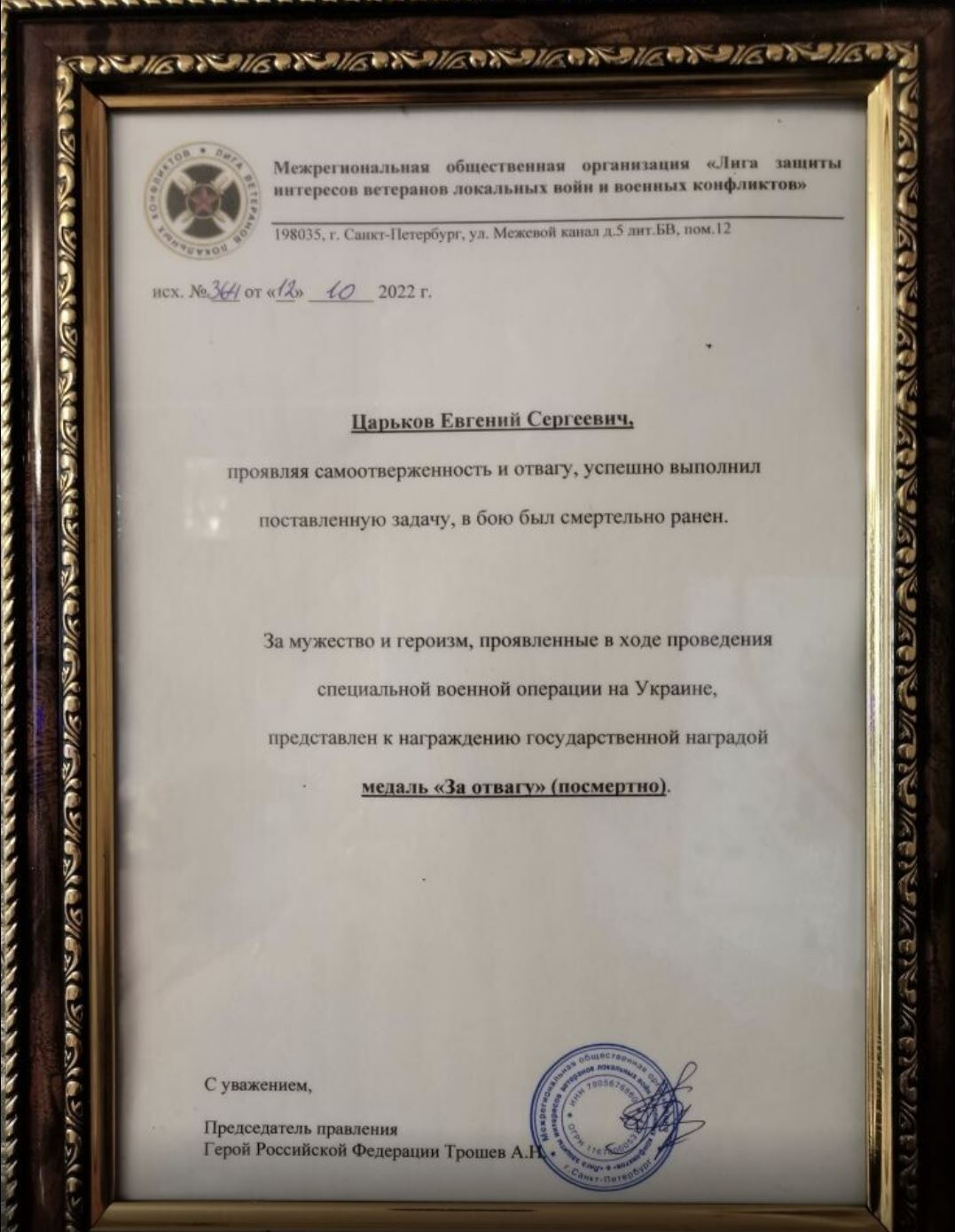
On October 13, a similar letter No. 454 was sent to the relatives of the deceased Yevgeny Brysin, who was convicted of murder.
It turns out that between October 12 and 13, the leadership of the PMC signed at least 90 letters about the death of their military. Here is how Major General of the SBU in the reserve Igor Guskov, who works in the center for combating hybrid threats, explains it:
“The date of the letter is not the date of death. In many cases [after the death of a military] identification is required (often they are pulled from the battlefield even after weeks). Therefore, the letters are only a statement that he died and will be awarded. Usually the date of the letter lags behind the date of death by 7-10 days.
However, all of these 90 letters refer specifically to the period between September and October, Guskov claims. Reports of the arrival of Russian prisoners on the territory of Ukraine began to appear as early as August, but the Center has only one documentary evidence of the death of a recruited before September (in August).
The largest ordinal number that was found among letters in the public domain is 458. A letter with this number was sent to Vladislav Ivanushkin's relatives on October 13:
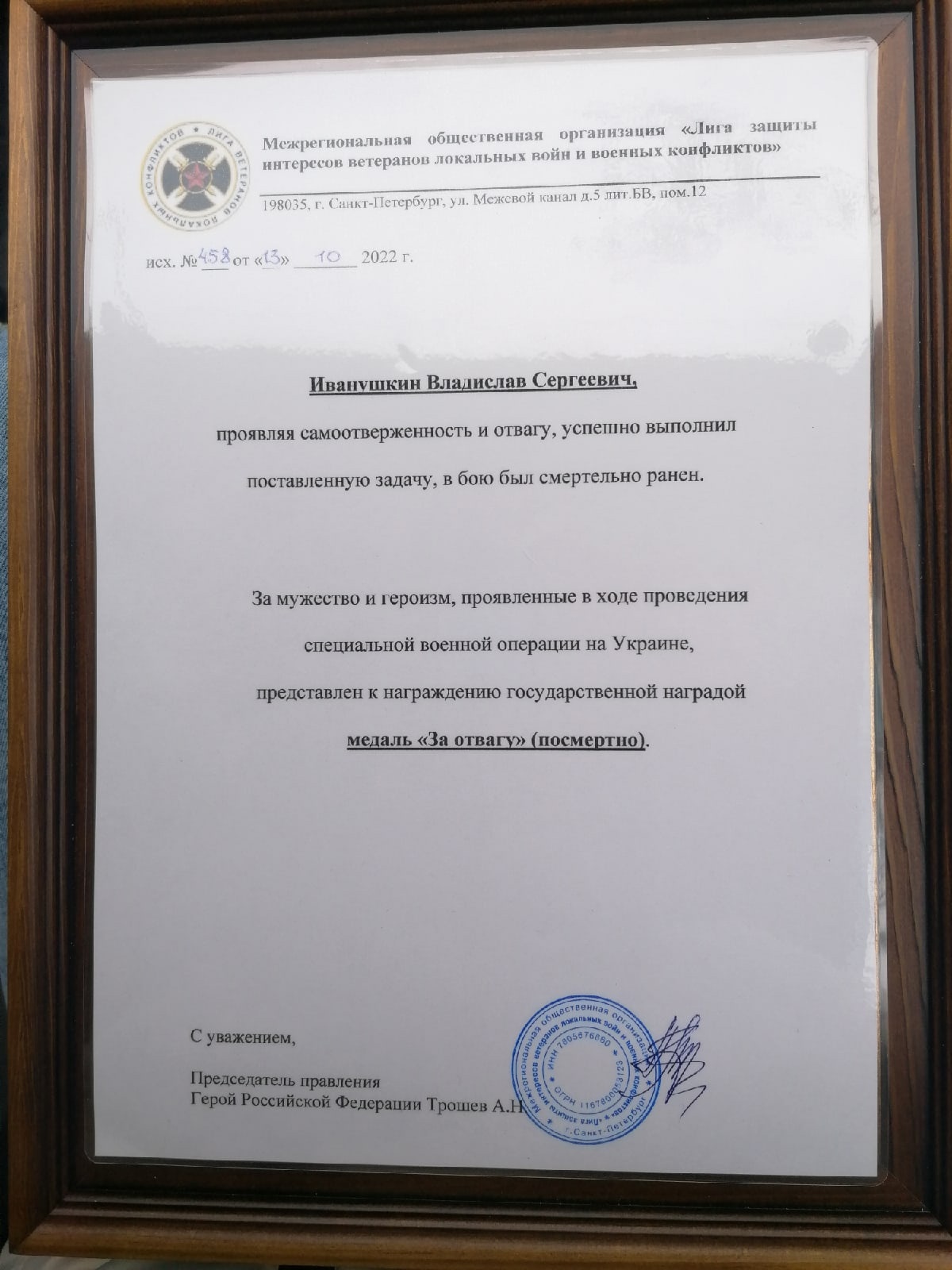
Thus, by mid-October, the PMC informed relatives of the deaths of 458 prisoners. At the same time, according to Important Stories, at the end of September, the Prigozhin PMC recruited about six thousand prisoners, and by that time at least 2,036 people had been taken out of them. This means that by October the Armed Forces of Ukraine had destroyed about a quarter of the Russian criminals who had reached the front.
According to the Center, the numbered letters about the death of former prisoners can be easily distinguished from the rest: they come along with a special medal (on a green ribbon) and a letter from the head of the “LPR” Leonid Pasechnik. Regular mercenaries receive different insignia, Guskov explains:
“These awards are found only among mercenaries from among the convicts and only from 2022. Each mercenary for a specific campaign has a reward (it's like a sign "friend or foe"). As a rule, they emerge in the public domain only after death. Until September 2022, there had never been such awards.
If the letters were sent to everyone, then they would meet with the usual black crosses, which are posthumously awarded to ordinary Wagnerians after death. At least one case has surfaced. But no . Now I have folders for at least 18 ordinary mercenaries, not convicts, who died during the assault on Popasnaya and Bakhmut and were awarded black crosses. There is not a single letter there, and there is no "letter" from Pasechnik.
These letters and green awards began to appear [on social networks] more often, in my opinion, due to psychological reasons: relatives used to be ashamed of the criminal record of their loved ones, but after death they are in a hurry to put [these letters and awards] up, as if saying that their husband (son, brother) is not a scoundrel, but a hero.
At the same time, according to the Center, the total number of Wagner PMC mercenaries killed in Ukraine (including both convicts and ordinary mercenaries) is from 800 to 1,000 people.
The Insider publishes the names of some of the dead prisoners, whose participation in the war (and whose death) was proved using information that is in the public domain. Among these people are those convicted of theft and sale of narcotic substances, as well as those who were imprisoned for murder. Some relatives of those killed confirmed to The Insider that they did indeed serve sentences in colonies, were recruited into PMCs and recently died in Ukraine.
1) Roman Suslov. 06/13/1982. Kirov region, Falensky district, Pervomaisky village. Information about the death is published here. Here's what his wife said in a conversation with The Insider:
“My husband Roman Suslov really died in Ukraine, we have a common son. He was in prison for 9 years for the murder of a friend. They were drinking, and a friend said that his father was somehow not like that. He only had a year to sit. They were sent [to the front] almost unprepared. He worked in the police for a long time, his skills have passed.
Before prison, 40-year-old Roman Suslov served in the police, he ended up in custody in 2014. According to his wife, recruiters from PMC Wagner promised the prisoner a pardon. True, no papers were provided to the family. Suslov himself believed that he was going to the front as a volunteer.
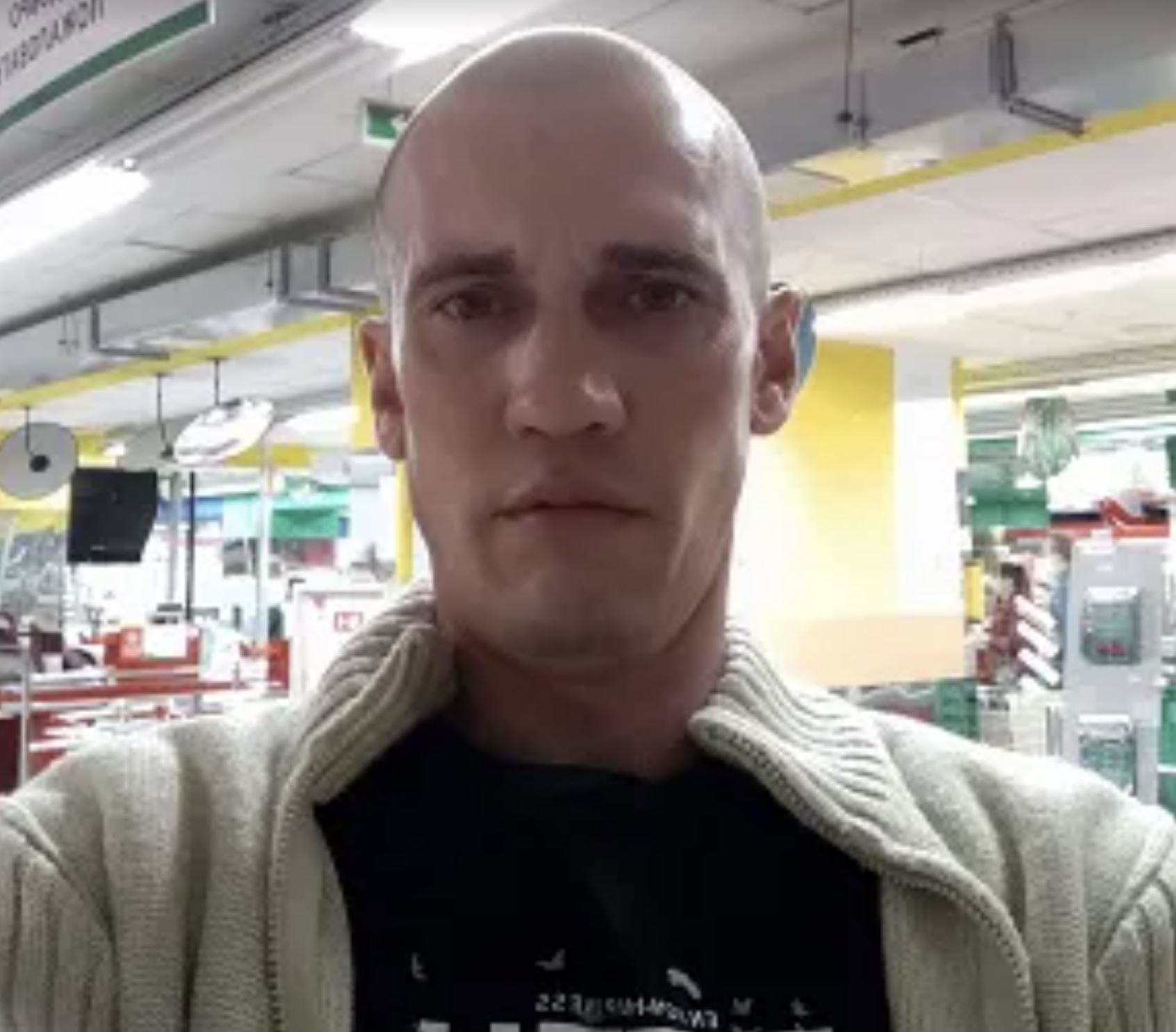
2) Evgeny Abramovich. 12/25/1988. Yaroslavl region. Information about the death is published here . Speaking to The Insider, his sister declined to reveal what article her brother was convicted under. As it turned out, in 2017 he was sentenced to 9 years under the article for murder.
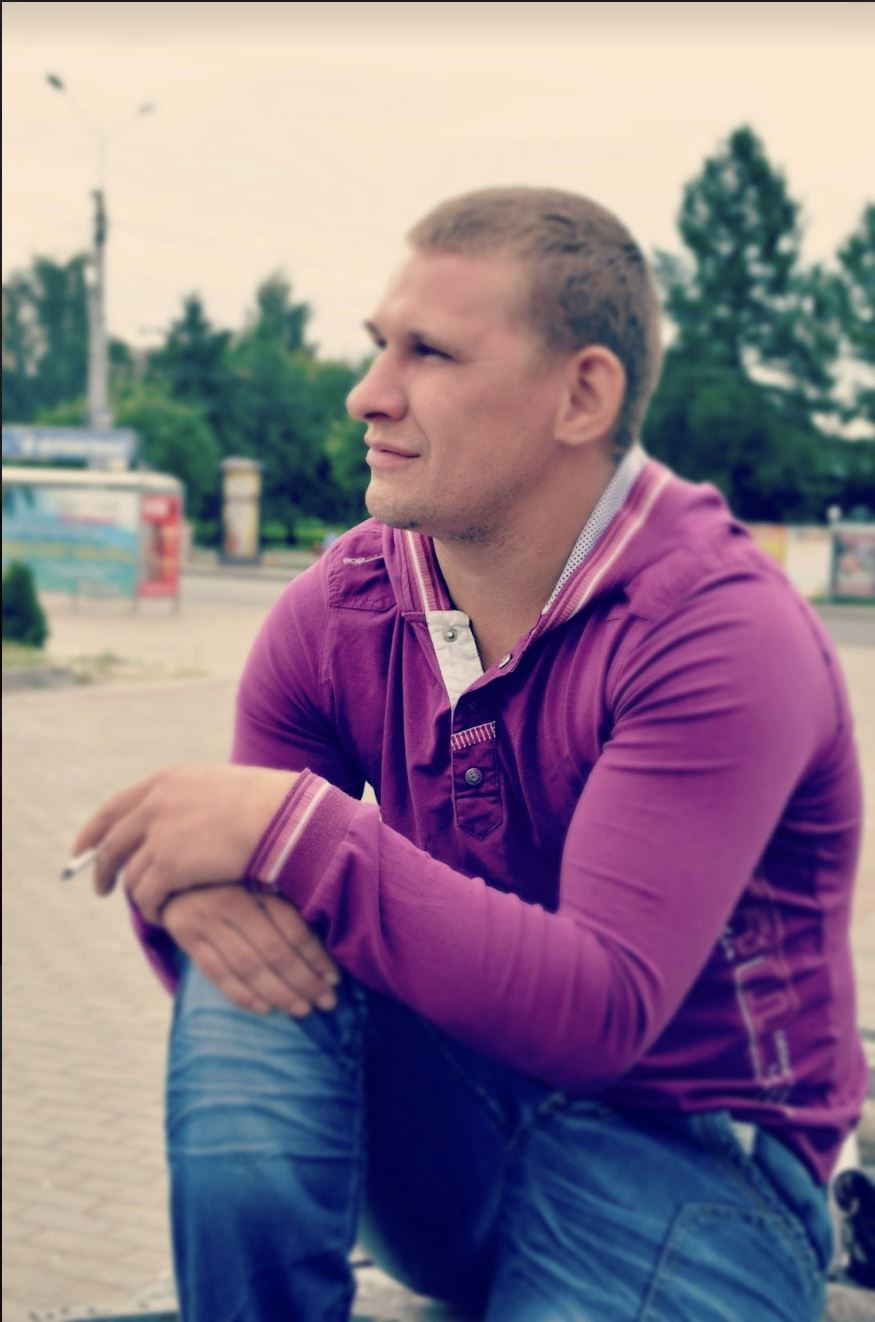
3) Vasily Valchuk . 03/25/1995. Ryazan. Information about his death is published here.
23-year-old Valchuk was sentenced in Ryazan to 9 years in prison for causing grievous bodily harm resulting in the death of a person. In March 2018, he had a fight with a housemate from the top floor, a cadet of the Federal Penitentiary Service Academy, who was celebrating his birthday and listening to music too loudly at night. As a result, the conflict turned into a stabbing. The student died from his wounds, and Valchuk went to a colony.
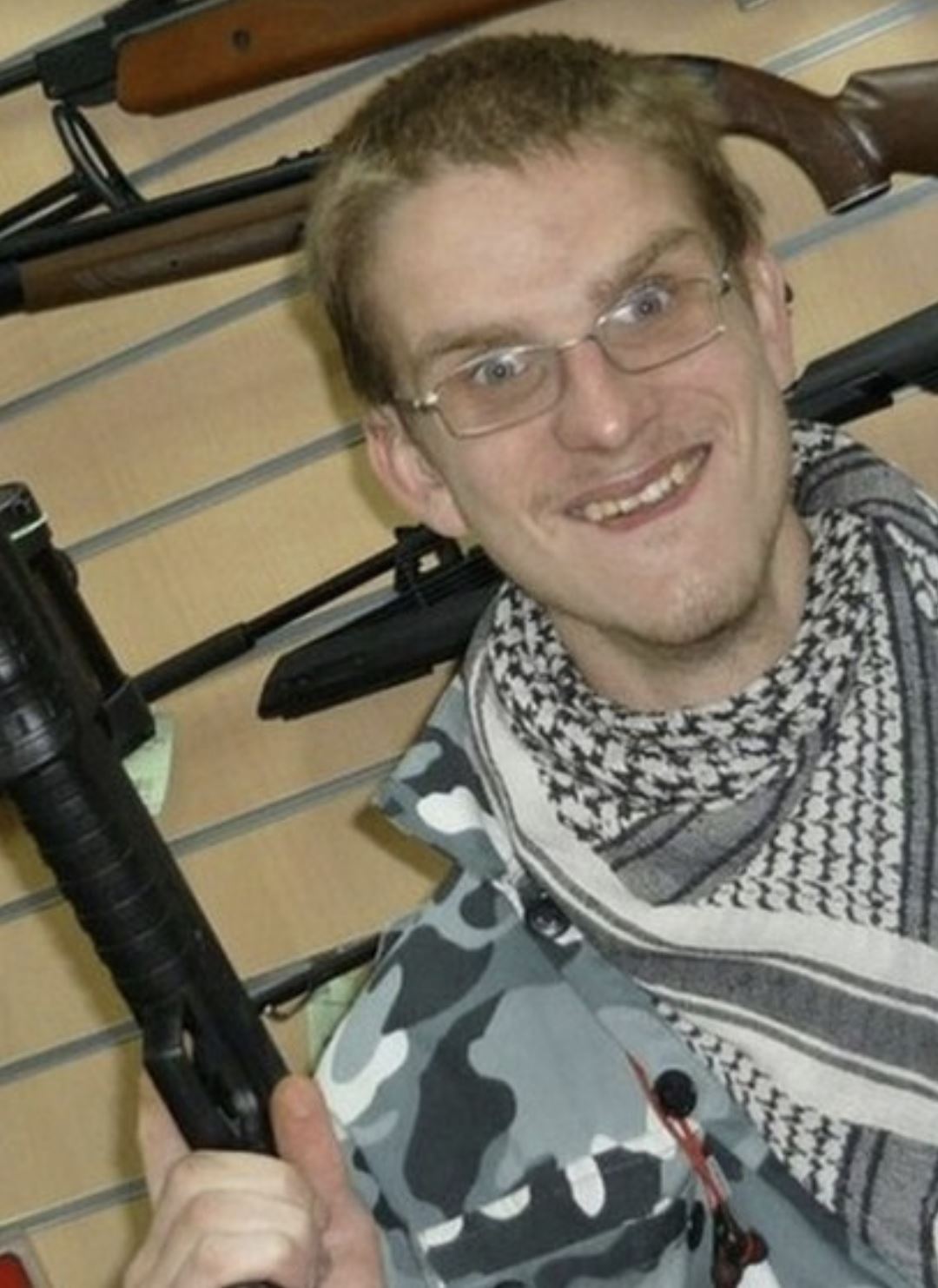
4) Ivan Vakhonin. 03/25/1992. Moscow region, Ivanovo. Information about his death is published here .
Before prison, Vakhonin was an activist of the Young Guard, was a member of the LDPR party, and was even nominated from it to municipal deputies in the Ivanovo region. In 2019, he was sentenced to 13 years in prison for drug trafficking – spice and salts.
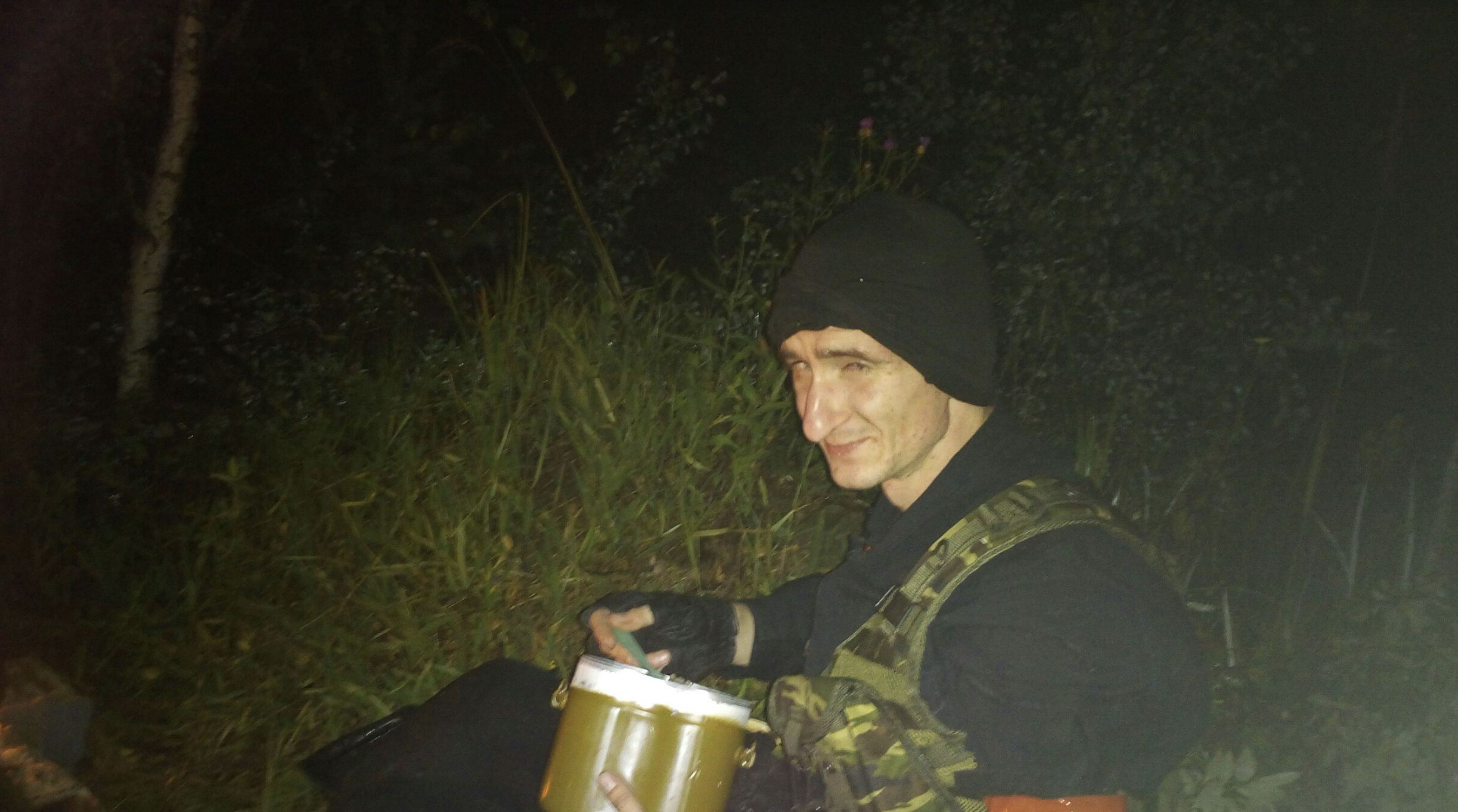
5) Evgeny Borisov. 10/27/1979. Republic of Tatarstan, Alekseevskoye settlement. Information about the death is published here .
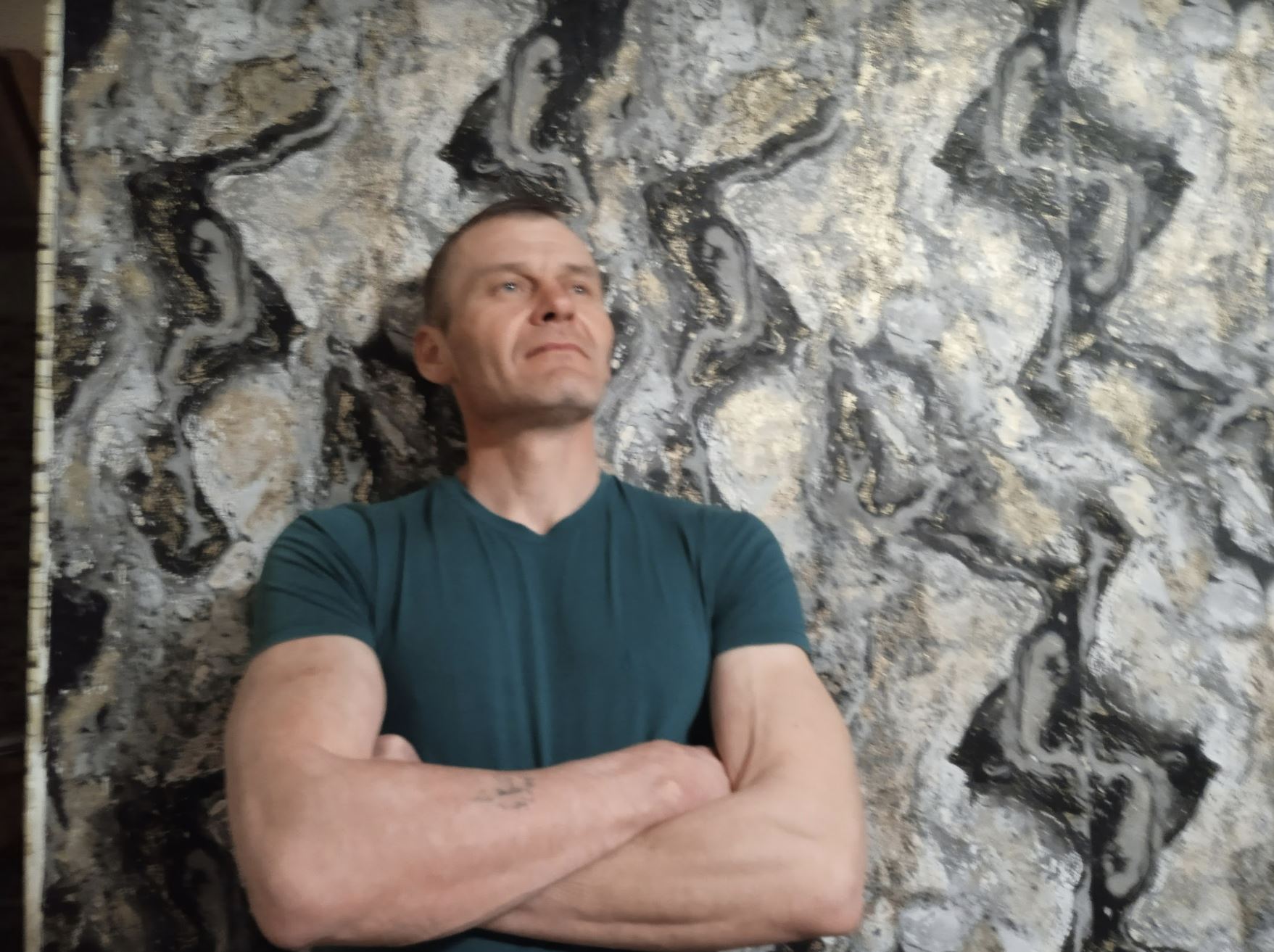
6) Mikhail Vasilyevich Bykov. 01/16/1983. Yaroslavl region. Information about the death is published here . In 2022, he was sentenced to 4 years in prison for causing grievous bodily harm.
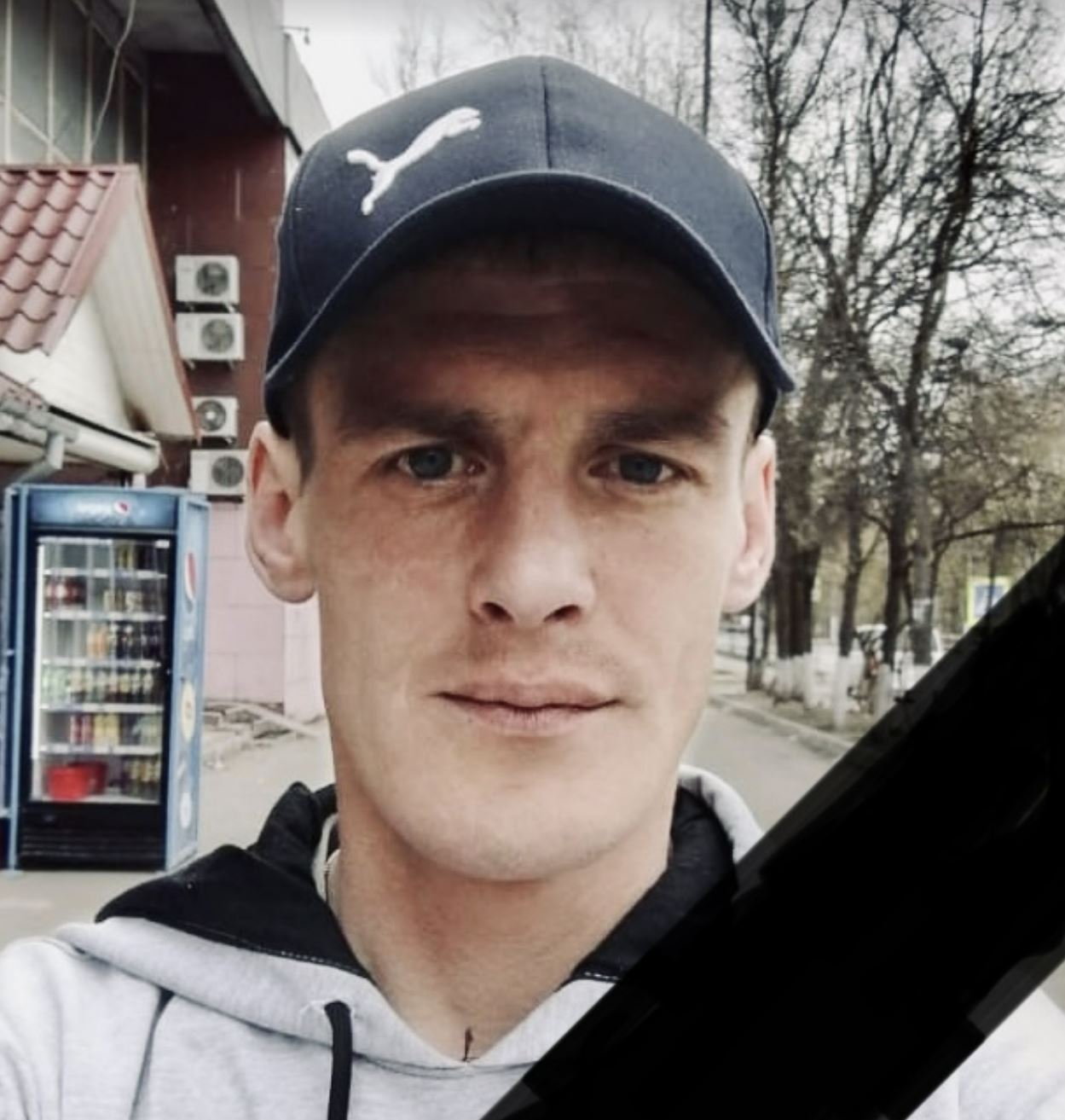
7) Dmitry Anokhin. Velikiy Novgorod. In 2015, he was convicted under article for murder. Information about his death is published here .
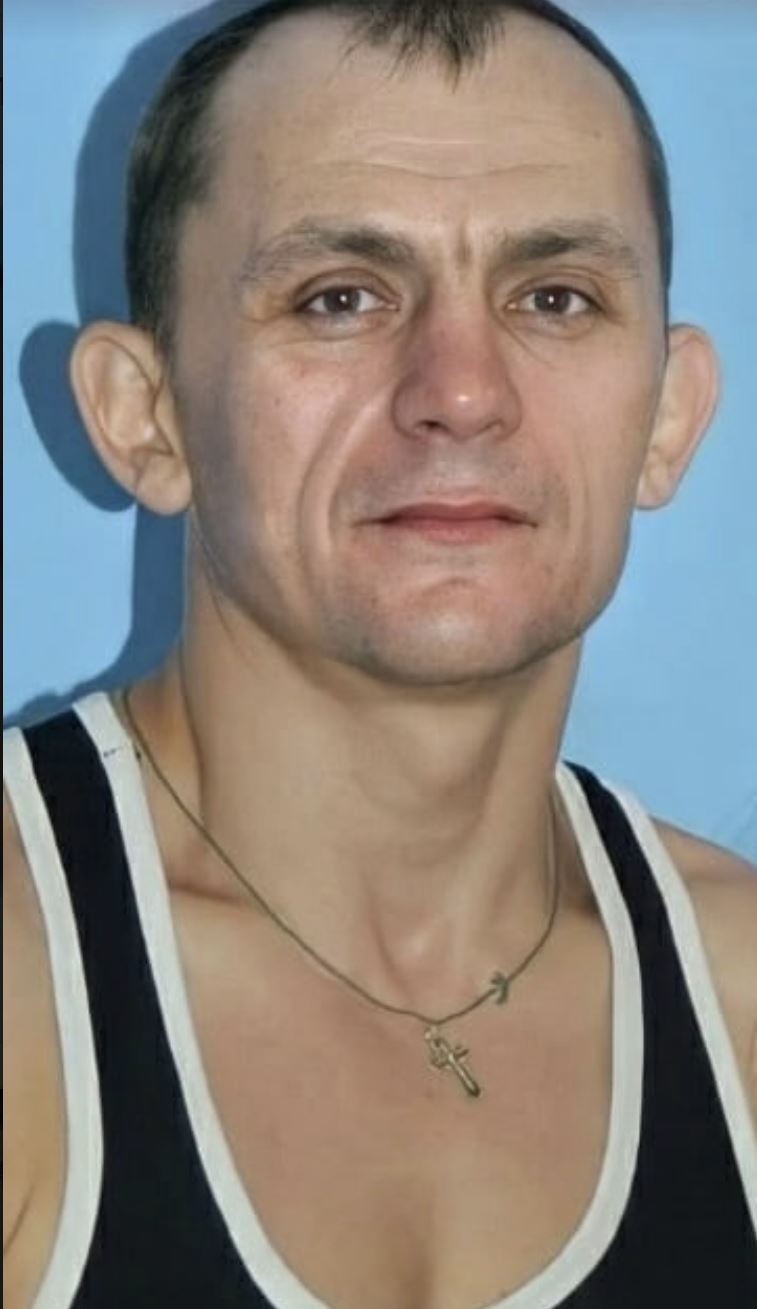
8) Alexey Brysin. 06/30/1994. Moscow region, Kolomna. Information about his death is publishedhere . In 2015, he was tried for theft, in 2021 he was convicted of murder.
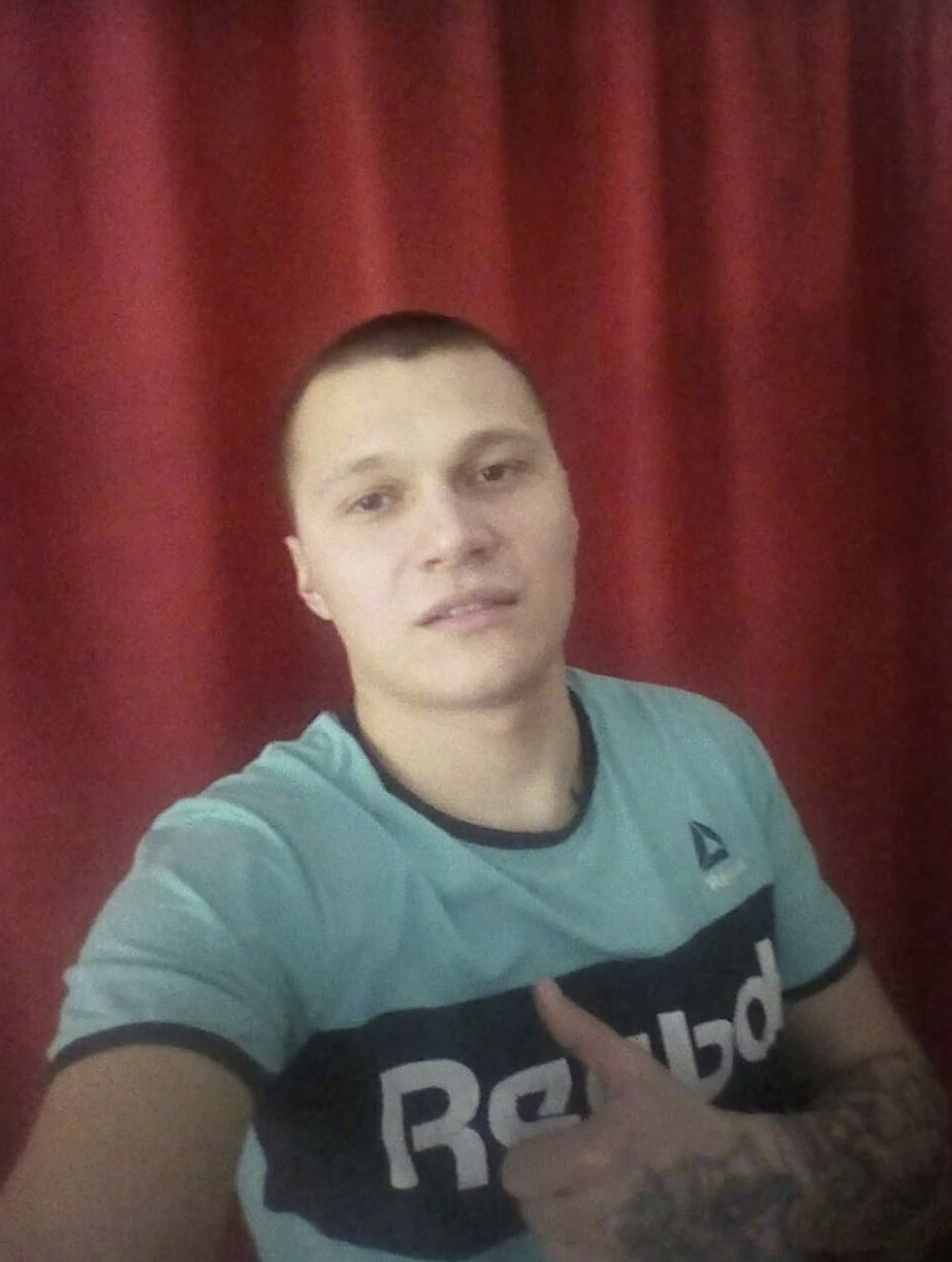
9) Andrey Gaponov. 09/01/1983. Leningrad region, Vyborgsky district, Podgornoye settlement. Information about his death is published here . He served time under article for theft.
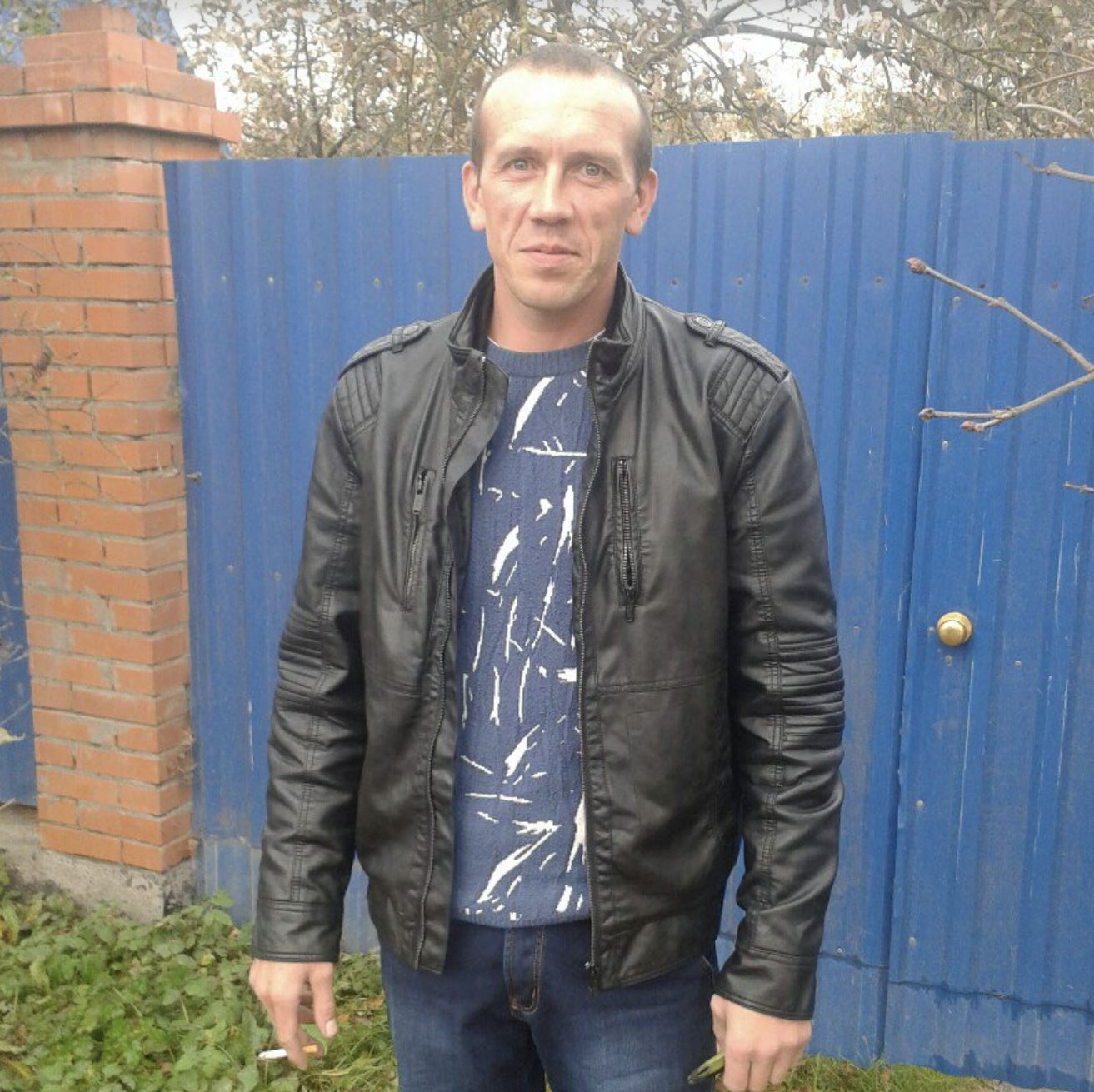
10) Kirill Zhavoronkov. 08/19/1994. Moscow region, Mytishchi. Information about the death is published here . He was sentenced to imprisonment under article for sale of drugs.
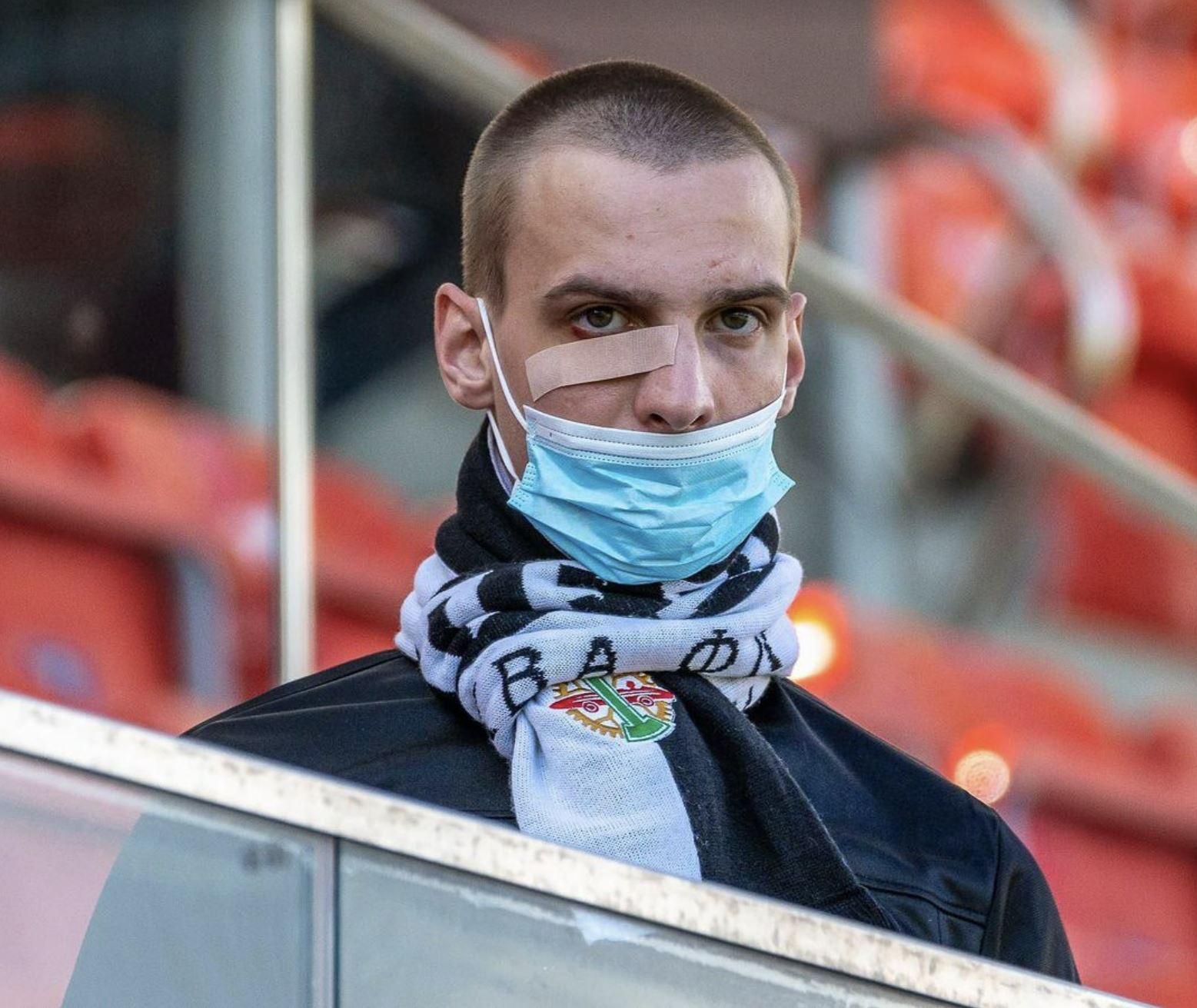
11) Vladislav Ivanushkin. 09/17/2001. Tula region, Aleksin. Information about the death is publishedhere . In 2021, he was sentenced to 13 years in prison for drug dealing.
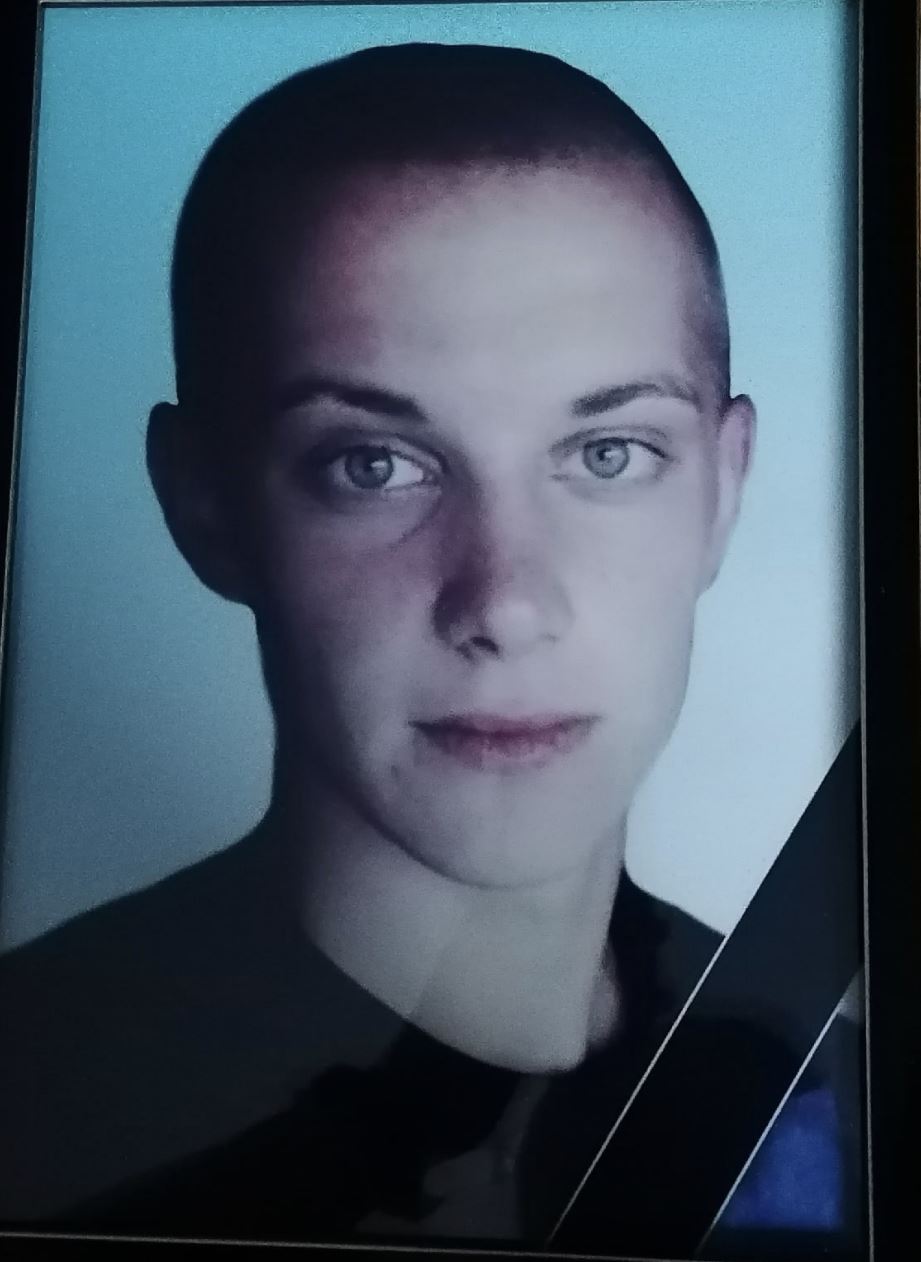
12) Sergey Kireev . 12/09/1976. Rostov region, Volgodonsk. Information about the death is published here . Served a term, 8 years, for the sale of drugs.
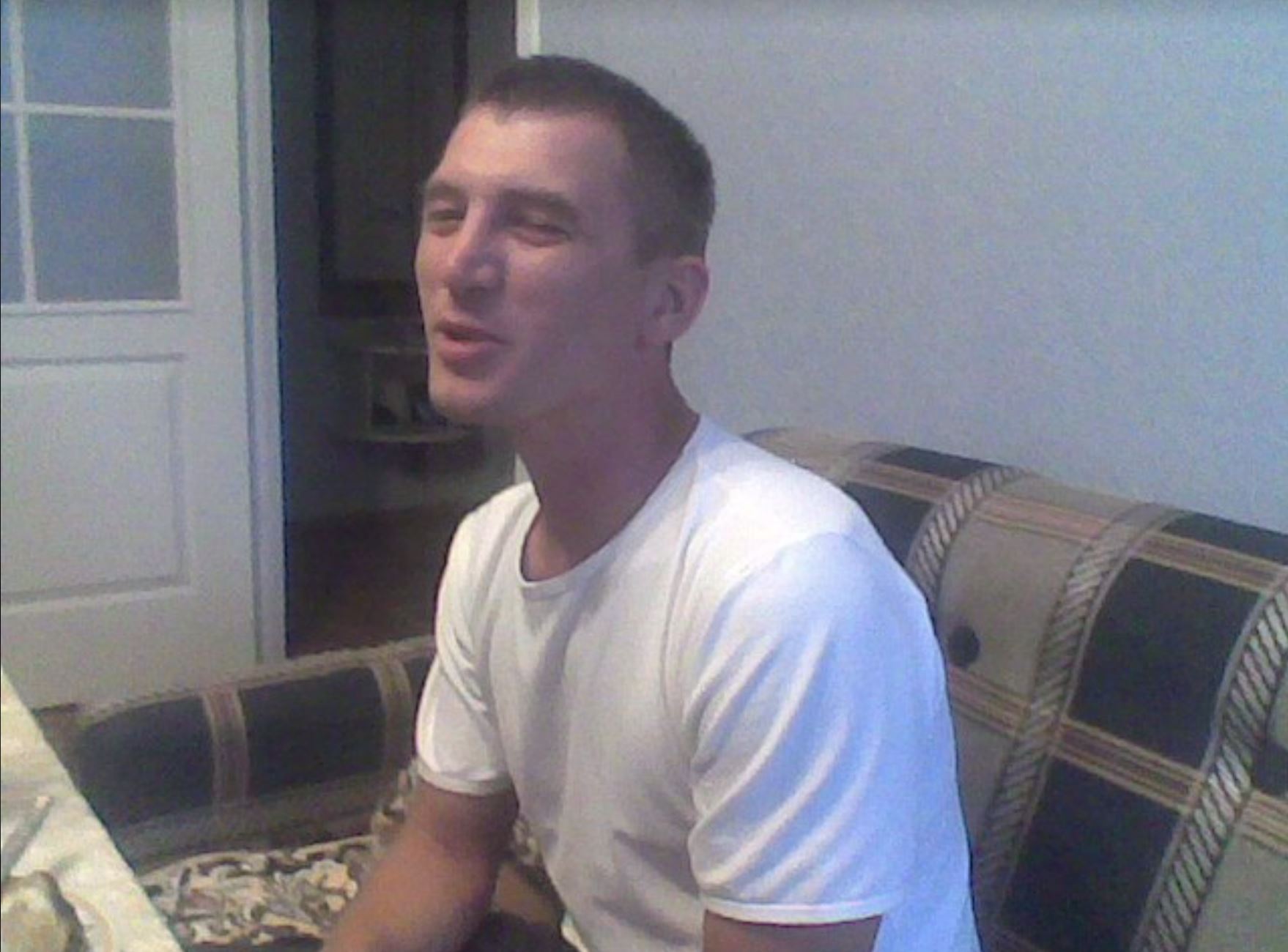
13) Vladimir Matveychuk. 03.12.1989. Rostov region. Information about his death is published here . He served time under article for theft and possession of drugs.
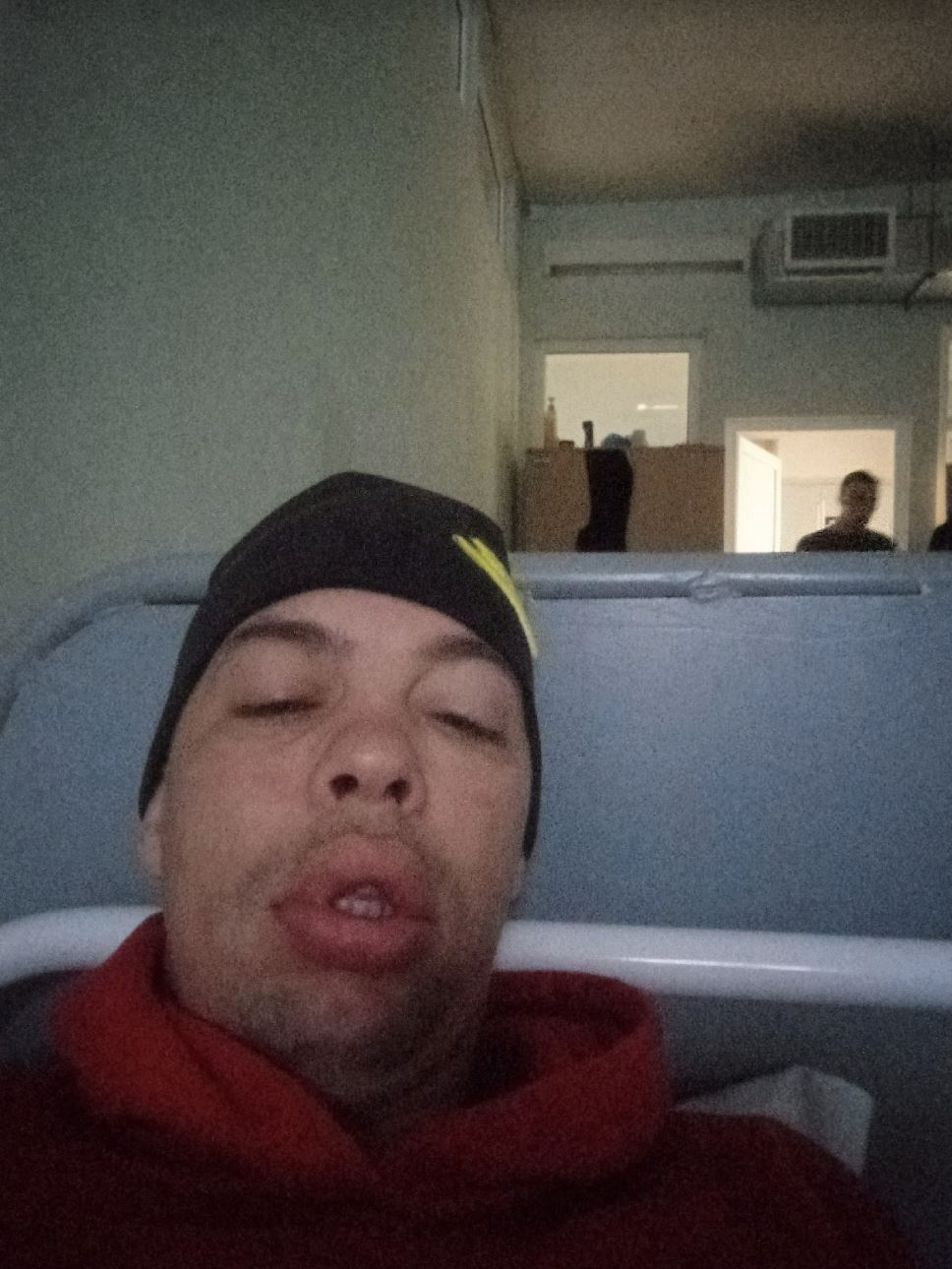
However, the high losses among prisoners can hardly be called unexpected – Prigozhin (he himself once served time for robbery and involving minors in criminal activities) and his recruiters openly warn : 80% of those who went to war with them will not return.


